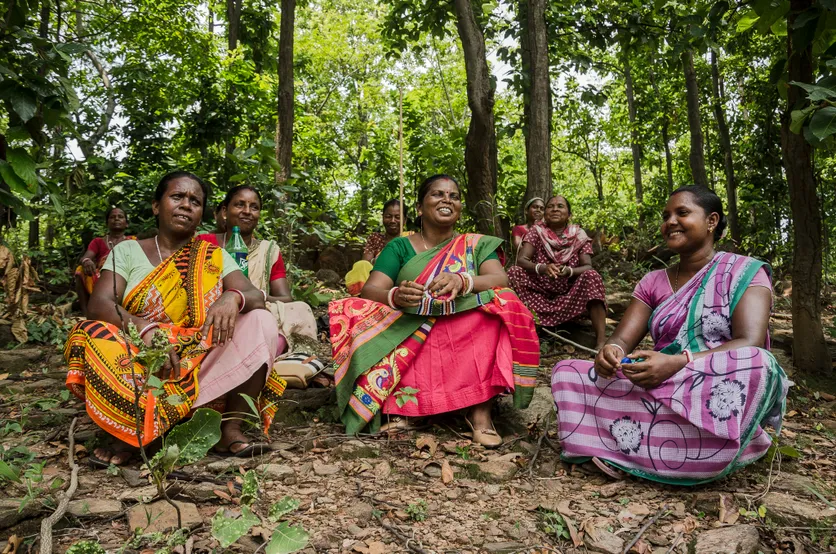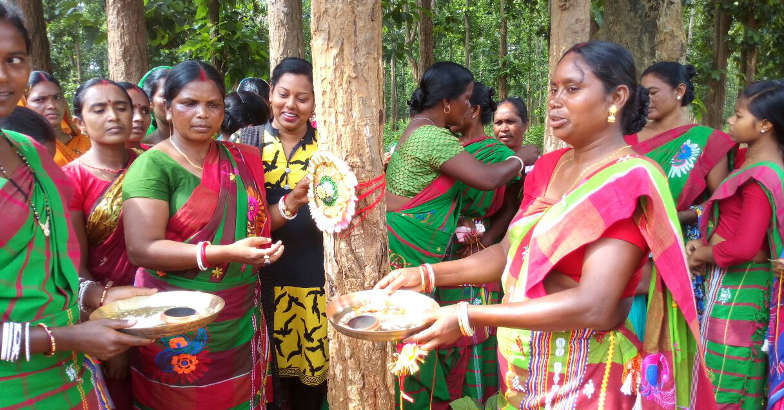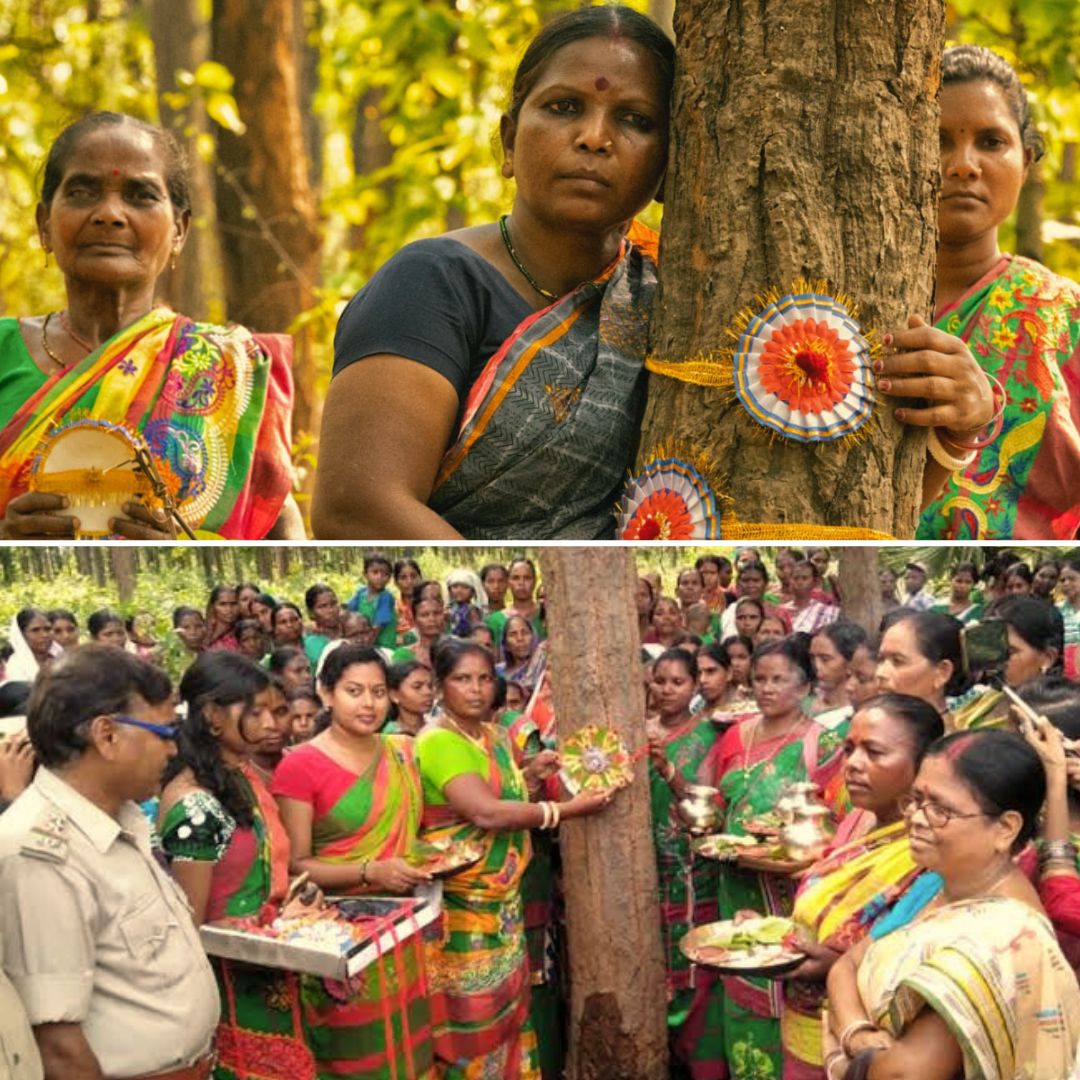Jamuna Tudu, widely known as the “Lady Tarzan” of Jharkhand, has emerged as a powerful symbol of grassroots environmental activism over the past two decades. Since 1998, when she moved to Muturkham village in Jharkhand, she has led a determined campaign to protect about 50 hectares (roughly 124 acres) of Sal forest from illegal logging by ruthless timber mafias.
Armed initially with bows and arrows, she rallied local women to form the Van Suraksha Samiti, a forest protection group that has grown to over 10,000 members organized in 500+ committees across Jharkhand.
Her ceaseless vigilance and leadership have revived a sense of stewardship in the community and earned her the prestigious Padma Shri award in 2019, along with national recognition from leaders including the President of India.
A Sisterhood Tied by Rakhi and Responsibility
Jamuna’s unique approach combines cultural tradition with environmental conservation. Every Raksha Bandhan, she ceremonially ties rakhis on the beloved trees in her forest, symbolising them as siblings to be protected as fiercely as family. This ritual strengthens the community’s emotional bond with the forest, turning tree conservation into a shared responsibility.
The Van Suraksha Samiti members patrol the forest thrice daily, using sustainable practices such as collecting fallen branches instead of cutting live trees. Her group faces threats and violence from timber mafias and even extremist groups but continues undeterred.
The women’s courage has transformed the local attitude toward ecology, encouraging tree planting rituals at births and marriages and fostering a culture of ecological respect and resilience.

Overcoming Threats and Building Alliances
Jamuna’s journey has been perilous. Her home was attacked by mafia members, and she and her husband have sustained injuries during confrontations, yet these dangers never dimmed her resolve.
Importantly, she worked beyond confrontation by raising awareness among villagers about sustainable resource use and collaborating with police and railway authorities to halt illegal timber transport.
This collaboration represents a crucial synergy between community activism and government enforcement. Over time, the Van Suraksha Samiti expanded its reach, influencing forest protection beyond Muturkham into neighbouring districts, proving that persistent, community-led action can challenge organised crime and safeguard vital ecosystems.
Over the years, Jamuna Tudu’s battle for forest conservation has sparked a remarkable ripple effect across Eastern India. Her strategy of combining vigilance and cultural rituals has given rise to a network of forest defenders beyond Jharkhand’s borders, inspiring neighbouring states to adopt similar approaches.
Children in her village grow up with stories of women standing fearlessly between trees and danger, nurturing a new generation that values nature as kin. Jamuna’s initiative has become a beacon for environmental empowerment, demonstrating that collective civic action at the grassroots level can truly hold criminals and exploiters accountable, ensuring forests thrive for years to come.

The Logical Indian’s Perspective
Jamuna Tudu’s story is a testament to the incredible power of grassroots activism led by women who balance tradition, courage, and environmental stewardship.
Her tireless efforts highlight the need for collective ownership of natural resources and demonstrate how local communities, even amid socio-political hardships, can drive profound ecological and social change.
The Logical Indian celebrates such models of coexistence and compassion for nature, urging greater government and civil society support for forest guardians. How can we replicate and scale Jamuna’s approach nationwide to foster peaceful, sustainable environmental protection while empowering communities?












